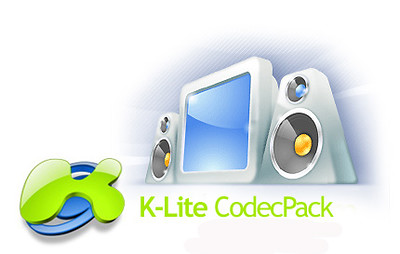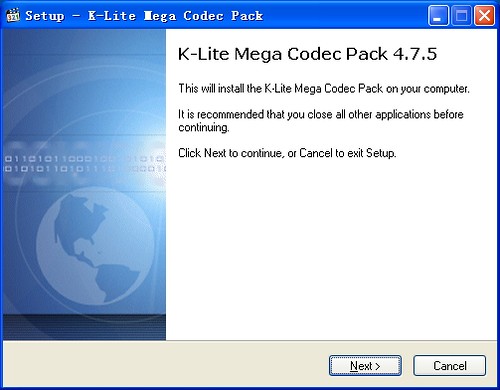Ever hit “play” on a video file, only to be greeted by a frustrating error message about a missing codec? Or maybe Windows Media Player stubbornly refuses to open that crucial .MKV file? You’re not alone. Windows, out of the box, doesn’t support every audio and video format under the sun. That’s where the K-Lite Codec Pack swoops in.
But is it truly the ultimate solution? Let’s dive in.

Table of Contents
What is the K-Lite Codec Pack? (And Why You Need It)
Briefly, the K-Lite Codec Pack is a very carefully selected set of essential software modules called “codecs” and a few additional tools. Codecs are small translators – they decode video and audio files that are compressed for playback on, and encoding for creation or distribution by, your computer.
- Why you need it: Without the right codecs, your Windows PC simply can’t interpret many common (and less common) media file types. This leads to the dreaded “Can’t play file” or “Missing codec” errors. The K-Lite Codec Pack installs a vast library of these translators, acting as a universal language pack for your media player(s), enabling smooth playback of almost anything you throw at it.
Tired of “Codec Missing” Errors? Windows Media Player Letting You Down?
We’ve all been there. You download a movie trailer (maybe an .MKV or .HEVC file), a colleague sends a specific audio recording (.FLAC), or you try to play an older .AVI – and boom. Black screen. Error message.
Silence. Windows Media Player, while familiar, is notoriously limited in its native format support. Scouring the web for individual, often dubious, codec installers is a recipe for system instability or even malware. This fragmented approach is the core problem.
K-Lite to the Rescue: Play (Nearly) Any Video or Audio File with Ease
In come the hero: the K-Lite Codec Pack. Instead of searching for half a dozen individual, possibly incompatible codecs, you simply install one large, well-tested package. Voilà: previously inaccessible files begin to play. Formats are:
Video: MKV, AVI, HEVC (H.265), VP9, AV1, FLV, MP4 (with less common codecs in), WebMD, MOV (hundreds of codecs), etc.
Audio: FLAC, DTS, True HD, AAC, AC3, OGG Verbs, Opus, ALAC, etc.
The K-Lite Codec pack transports them there effortlessly, defusing frustration into instant playback.

K-Lite Versions: Basic, Standard, Full, or Mega? Selecting Your Perfect Pack
One size doesn’t fit all, so K-Lite Codec offers alternatives. Choosing the right one depends on your needs:
Basic: The bare minimum option. Contains only the minimum required codecs for popular formats (MPEG-1/2/4, H.264, AAC). For the older hardware or just for minimal playback ability. There is no player included.
Standard (Recommended for Most): The happy medium. Concludes essential support for MKV, WebMD, FLAC, and the fantastic Media Player Classic Home Cinema (MPC-HC) player. Covers 99% of users’ needs.
Decoding the Differences: Which K-Lite Pack is Right For You?
- Casual User / Basic Playback: Basic or Standard.
- Typical Home User / Movie Enthusiast: Standard (Highly Recommended).
- Power User / Quality Focused: Full.
Professional / Needs Obscure Format Support: Mega.
When in doubt, Standard is the best starting point for most Windows users
Getting Started: Installing K-Lite Codec Pack, A Step-by-Step Guide
Ready to eliminate codec errors? Installing the K-Lite Codec Pack is easy:
Download: Go to the official website (codecguide.com) and download your preferred version (e.g., Standard).
Run Installer: Double-click the downloaded .exe file.
Select Components: The installation comes with options. For most standard pack users, the defaults will do.
Preferred Player: Select your video player preference (MPC-HC is great and recommended).
File Associations: Pick if you want the pack’s player (e.g., MPC-HC) to play regular video/audio files.
Install: Pick “Install” and let it be its merry way.
Finish: Reboot if prompted (though generally not technically necessary).
Installation Guide: Settings Made Clear (Don’t Just Click Next!)
All are good enough with defaults, but nice to know important settings to prevent future agony:
Install Location: Leave to default (C:\\Program Files\\K-Lite Codec Pack\\).
Create Start Menu Folder: Optional, but convenient for easy tool access.
Select Components: In Standard/Full/Mega, you can uncheck very uncommon ones if you have to (but leave rest to defaults otherwise).
Preferred Video Player: Strongly recommend checking MPC-HC.
File Associations: Select which player (Windows Media Player, MPC-HC, etc.) to open your files. Alternatively, you can do it later.
Reset all settings to default: CRITICAL! Highly recommended, particularly on first installation. Clean slate and avoiding conflicts.
Hardware Acceleration: Options like DXVA2 for NVIDIA/AMD/Intel. Safe to enable if supported. Don’t be in such a hurry! Spent 30 seconds going through these for proper setup.
More Than Just Codecs: What Does K-Lite Actually Provide?
The K-Lite Codec Pack is not just a ghost codec pack. It has strong utilities to add flavor to your overall media experience:
Must-Have Utilities: Media Player Classic Home Cinema (MPC-HC) & Codec Tweak Tool
MPC-HC: This is a lightweight, open-source player that is a gem. It is fast, resource-efficient, feature-packed (subtitles, speed, audio tracks), and squeezes the best out of installed K-Lite Codec with ease. Out performs heavyweight players time and again.
Codec Tweak Tool: Your settings panel. Debug codec issues, set file associations, adjust decoder settings, reset settings, and uninstall possible conflicts. A must-have for testing.
Format Freedom: Play AVI, MKV, FLAC, HEVC, VP9, and More!
The magic that makes it all work. The K-Lite Codec Pack enables playback of a staggering array of formats:
Video Containers: AVI, MKV, MP4, MOV, FLV, WebMD, OGM, and many others.
Video Codecs: H.264, HEVC (H.265), VP9, AV1, MPEG-1/2/4, DivX, Avid, VC-1, and hundreds more.
Audio Formats: FLAC (lossless), AAC, AC3, DTS, True HD, Opus, Verbs (OGG), ALAC, MP3, WMA, and many, many more. Farewell, format anxiety.
Stability and Security: Why K-Lite is a Safe Bet
This is important. Random installation of Internet-based codecs is unsafe. They can conflict. Causes system instability, or contains malware.
The K-Lite Codec Pack stands out because:
Hand-picked and tested: Components are hand-picked and tested for compatibility with meticulous attention to detail.
Single Point of Management: The Codec Tweak Tool prevents clashes.
Quality Source: Downloaded directly from codecguide.com, no malware or adware (download directly from site!).
Regular Updates: Updated on a regular basis to kill bugs, improve compatibility, and patch security holes.
It makes use of full codec support without the inconvenience and danger of the original codec search.
Playing Files, Installing MPC-HC, and Codec Administration with K-Lite
Once installed, working with the K-Lite Codec Pack is mostly transparent:
Play Files: Double-click on your media files! They will now play in your default player (e.g., MPC-HC) and play lovely.
Working with MPC-HC: Explore its menus! Right-click within the player for options. Configure subtitles (typically automatic or drag-and-drop), audio tracks, speed, and video settings (View -> Options).
Codecs Management: Use Codec Tweak Tool (search for it in the Start Menu folder). It allows you to:
See installed and activated codecs/filters.
Change default decoders for formats.
Reset settings to fix issues.
Tweak file associations.
Remove faulty/obsolete codec settings. Be cautious using the tool; playback is affected by changes.
Common K-Lite Issues Solved: Playback Problem Troubleshooting
Even with K-Lite Codec, sometimes things go wrong. Solutions to common issues here:
“Why isn’t my file playing?” Solutions & The Codec Tweak Tool Saves the Day
Check the File: Is it corrupted? Try playing it on another PC or with VLC as a test.
Update K-Lite: Are you using the newest version (check with Codec Tweak Tool -> Main tab)?.
Change Preferred Decoder (Advanced): If a specific format (e.g., HEVC) isn’t working, use the Codec Tweak Tool -> “Preferred decoders” or “DirectShow Filters” tabs to try an alternate decoder (e.g., change HEVC from “Microsoft” to “LAV Video”).
Reinstall: As a last resort, uninstall K-Lite via Windows Settings -> Apps, reboot, then install the latest version, ensuring “Reset all settings” is checked during installation.

Is K-Lite Still Needed? VLC Player Alternatives Described
It is not a bad question at all! New arrival such as VLC Media Player and MPC-BE are “standalone” – they come with most of the codecs natively. In most cases, VLC installation solves their playback problem in the first place without needing a system-wide codec pack such as K-Lite Codec.
VLC/MPC-BE benefits: Simple install, adequate format support out-of-the-box, less opportunity for system conflict, ideal for straightforward playback.
VLC/MPC-BE Cons: Their internal codecs only function under that individual player. They don’t provide system-wide support for other players (e.g., Windows Media Player, old programs, or video editing packages).
K-Lite vs. VLC: What Media Solution Works for You?
Choose VLC (or MPC-BE) if:
You require only one media player.
You like the minimal solution.
You don’t make use of Windows Media Player or other software reliant on system codecs.
Choose the K-Lite Codec Pack if:
You require system-wide codec support for all (including WMP, File Explorer previews, etc.).
You want to utilize MPC-HC (or wish it included special features).
You need sophisticated configuration via the Codec Tweak Tool.
You want the best possible format compatibility layer integrated into Windows.
You use video editing/encoding software that relies on system codecs. Or, at the very least, you can use both! Install VLC and K-Lite. VLC uses its internal codecs, while other programs use the system-wide K-Lite Codec support.
Final Verdict: Is the K-Lite Codec Pack Worth Installing in 2024?
Absolutely, for the appropriate user. Although independent players like VLC reduce the need for codec packs in terms of general playback, the K-Lite Codec Pack remains very handy and relevant. It provides unparalleled system-wide format support, integrates flawlessly with the excellent MPC-HC player, and features solid management tools, all from a trusted, secure source.
K-Lite Codec Pack FAQ
K-Lite Codec Pack FAQ
K-Lite Codec Pack

